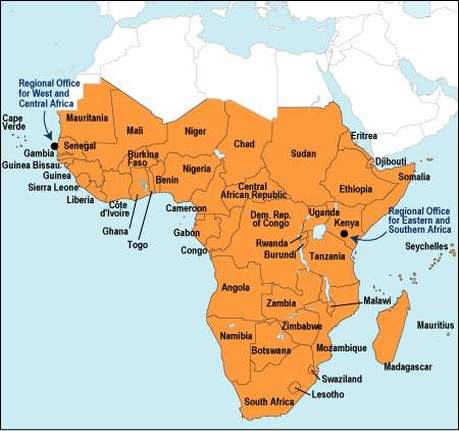
The traditional music of Africa, given the vastness of the continent, is historically ancient, rich and diverse, with different regions and nations of Africa having many distinct musical traditions. Music in Africa is very important when it comes to religion. Songs and music are used in rituals and religious ceremonies, to pass down stories from generation too generation, as well as to sing and dance to.
Traditional music in most of the continent is passed down orally (or aurally) and is not written. In Sub-Saharan African music traditions, it frequently relies on percussion instruments of every variety, including xylophones, djembes, drums, and tone-producing instruments such as the mbira or "thumb piano." This music is best known for its rhythmic features; odd meters, syncopation, and polyrhythms. Ensembles are led by a Master Drummer, who sets the tempo and calls the changes in the music. There is a rich variety of song to be found across the whole area, often sung in a call and response texture with simple harmony in 3rds, 4ths and 5ths.
Traditional music in most of the continent is passed down orally (or aurally) and is not written. In Sub-Saharan African music traditions, it frequently relies on percussion instruments of every variety, including xylophones, djembes, drums, and tone-producing instruments such as the mbira or "thumb piano." This music is best known for its rhythmic features; odd meters, syncopation, and polyrhythms. Ensembles are led by a Master Drummer, who sets the tempo and calls the changes in the music. There is a rich variety of song to be found across the whole area, often sung in a call and response texture with simple harmony in 3rds, 4ths and 5ths.
Listening Examples
African Music Listening Practice
|
| ||||||||||||
